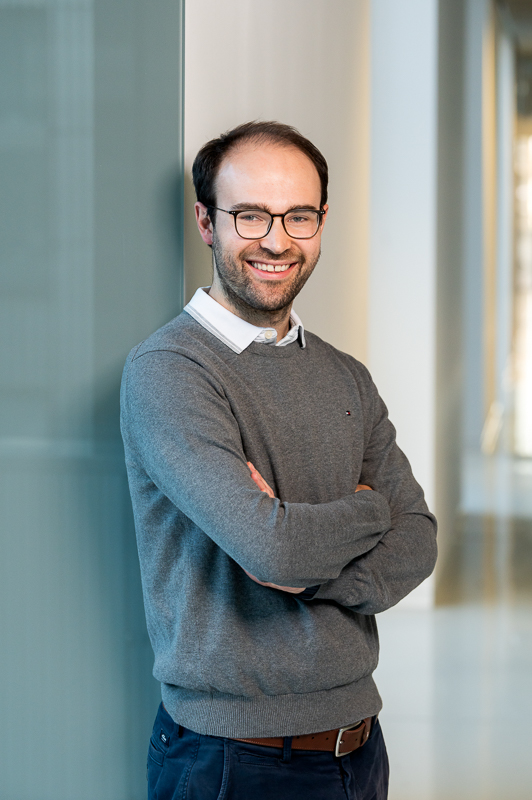
Excellent work: Dr. Philip Stanley was honored with Munich Sustainability Award. (Photo: Astrid Eckert, TUM)
Research that drives artificial photosynthesis is an essential building block for the energy transition. Dr. Philip Stanley, who completed his PhD thesis under Prof. Roland Fischer at the Technical University of Munich, contributed important findings on this topic. On 8th February, the chemist received the Munich Sustainability Award for his dissertation on “Solar Fuel Production with Metal-Organic Framework and Molecular Catalyst Assemblies”. This prize and the “Special Prizes Education for Sustainable Development (ESD) 2023” were awarded by the Rachel Carson Centre (RCC) of the Ludwig-Maximilians University of Munich, the Association for Sustainability, and the RCE BenE Munich. The awards sponsors are the Selbach-Umwelt Stiftung, the Verein für Nachhaltigkeit, and the Department for Climate and Environmental Protection of the City of Munich.
How structures trained on photosynthesis
Philip Stanley’s research focussed on new porous solids, so-called metal-organic frameworks (MOFs for short), combined with molecular catalysts. Because natural enzymes inspire the structures, the term nanozymes is often used. This novel hybrid material can produce a synthesis gas, i.e., a carbon monoxide and hydrogen mixture. This gas mix is an important industrial raw material for producing essential chemicals such as ammonia, methanol, and hydrocarbon fuels. The highlight: the nanozyme requires only water, carbon dioxide and sunlight for synthesis gas production. What is outstanding is that the artificial photosynthesis of the MOF is even more efficient than its natural counterpart. Philip Stanley’s work can contribute to developing relevant technical solutions for sustainable CO2 recycling. With over 150 citations, the dissertation has now been intensively received in the scientific community. This innovative contribution to energy research is internationally visible and raises the profile of Bavarian sustainability research.
We congratulate Philip Stanley on this exciting award and wish him continued success in his scientific future!
